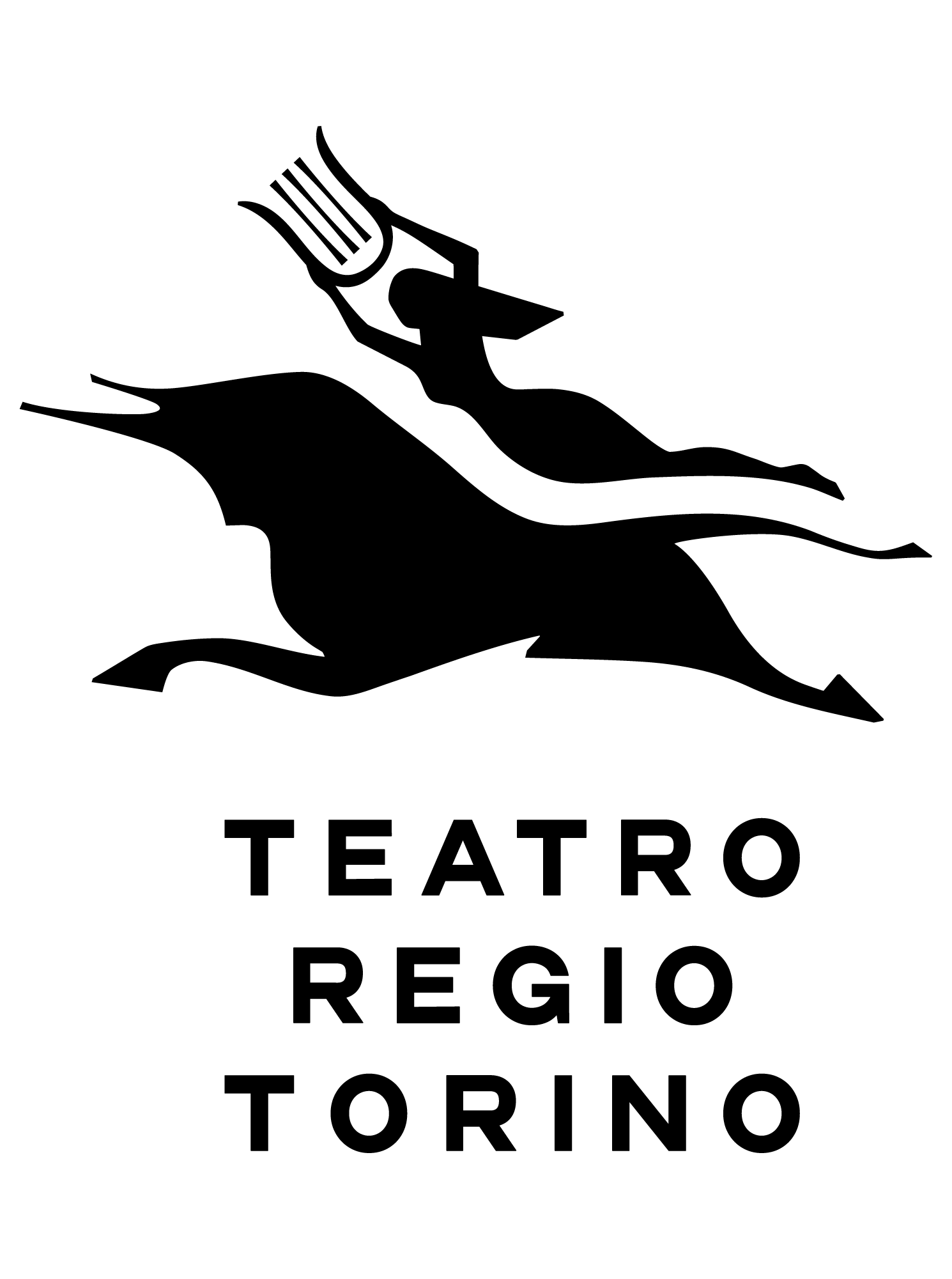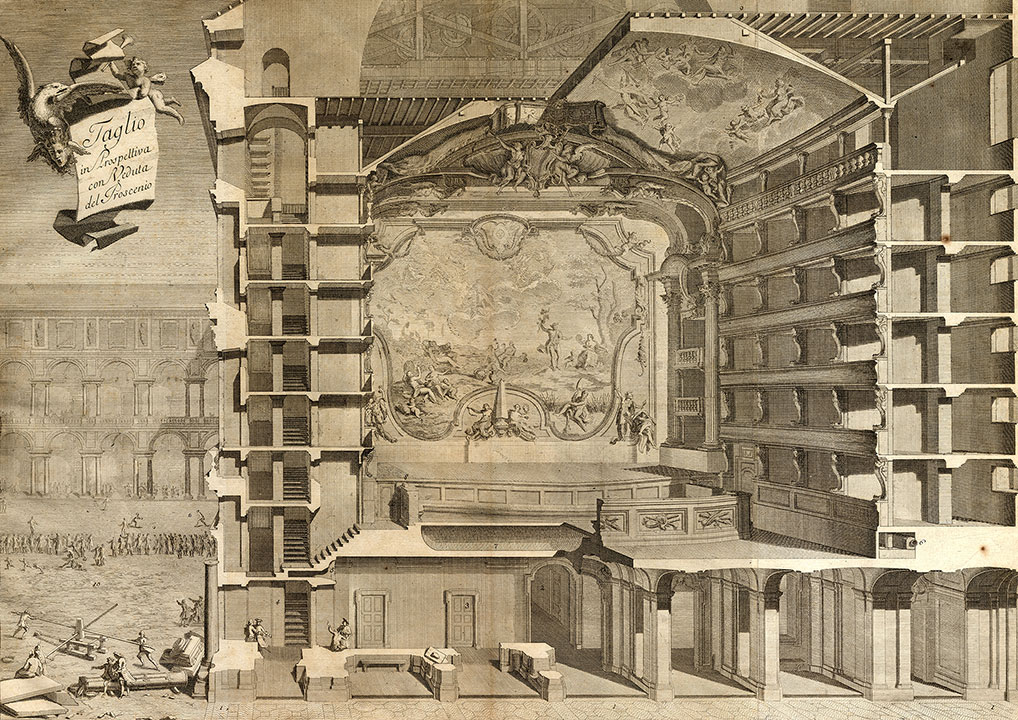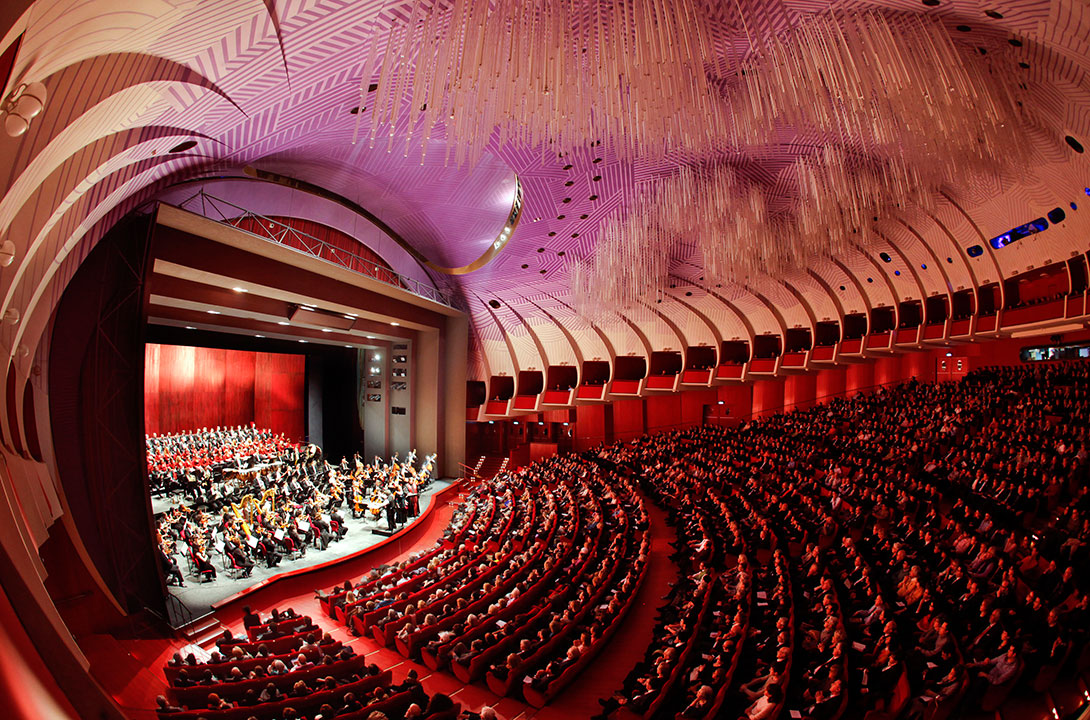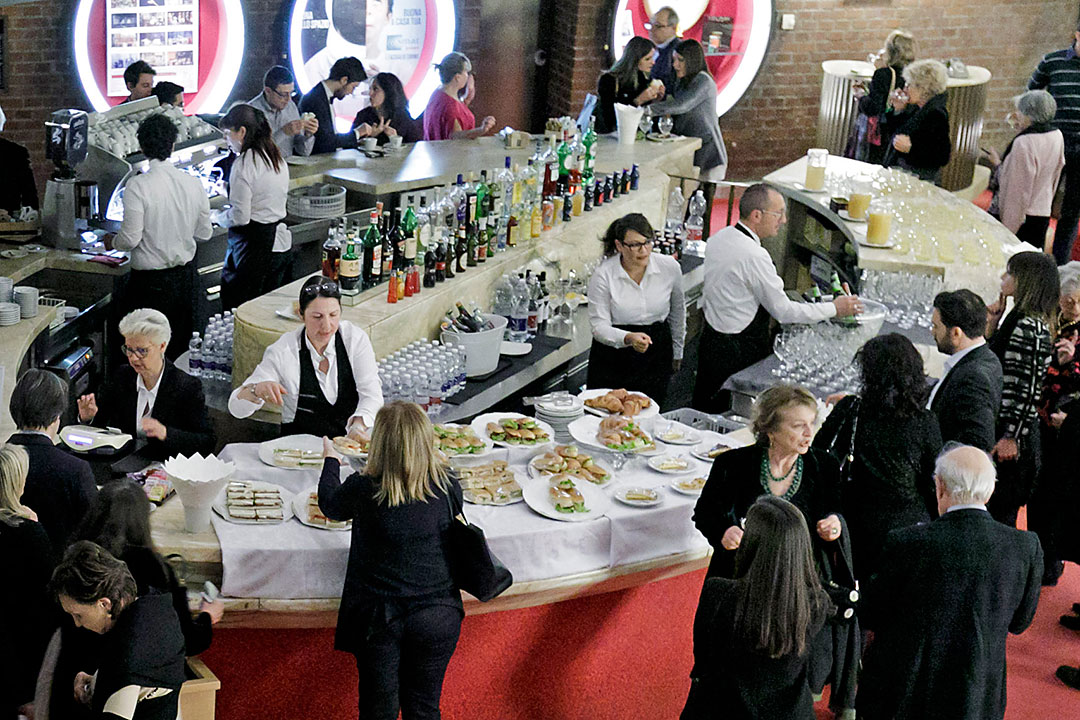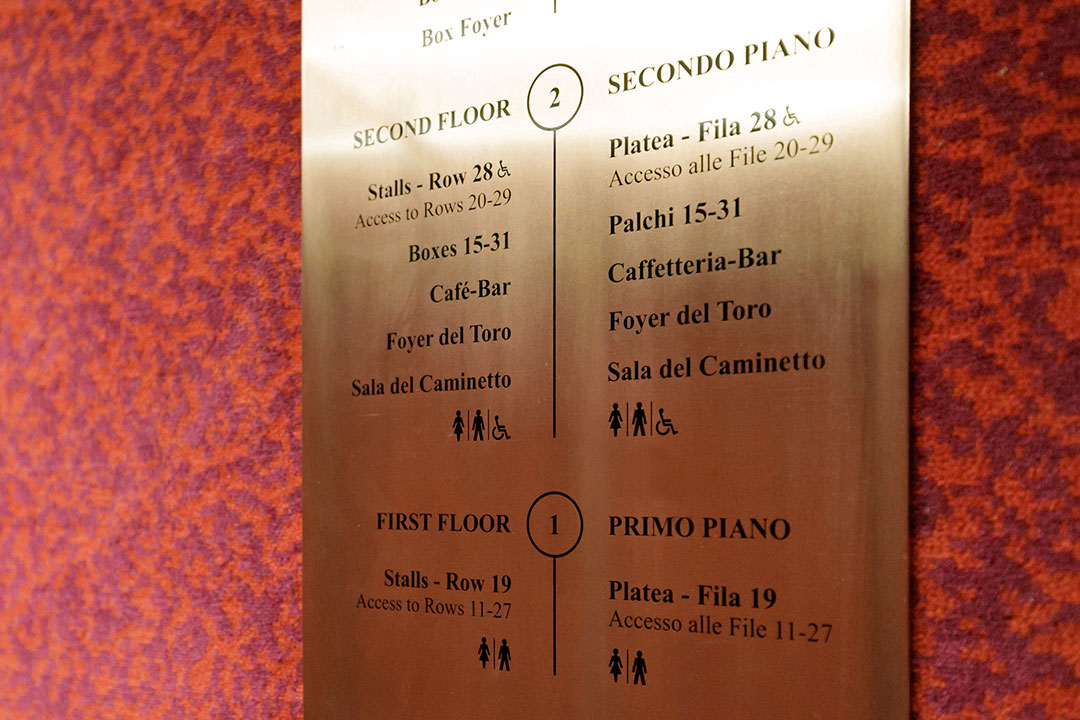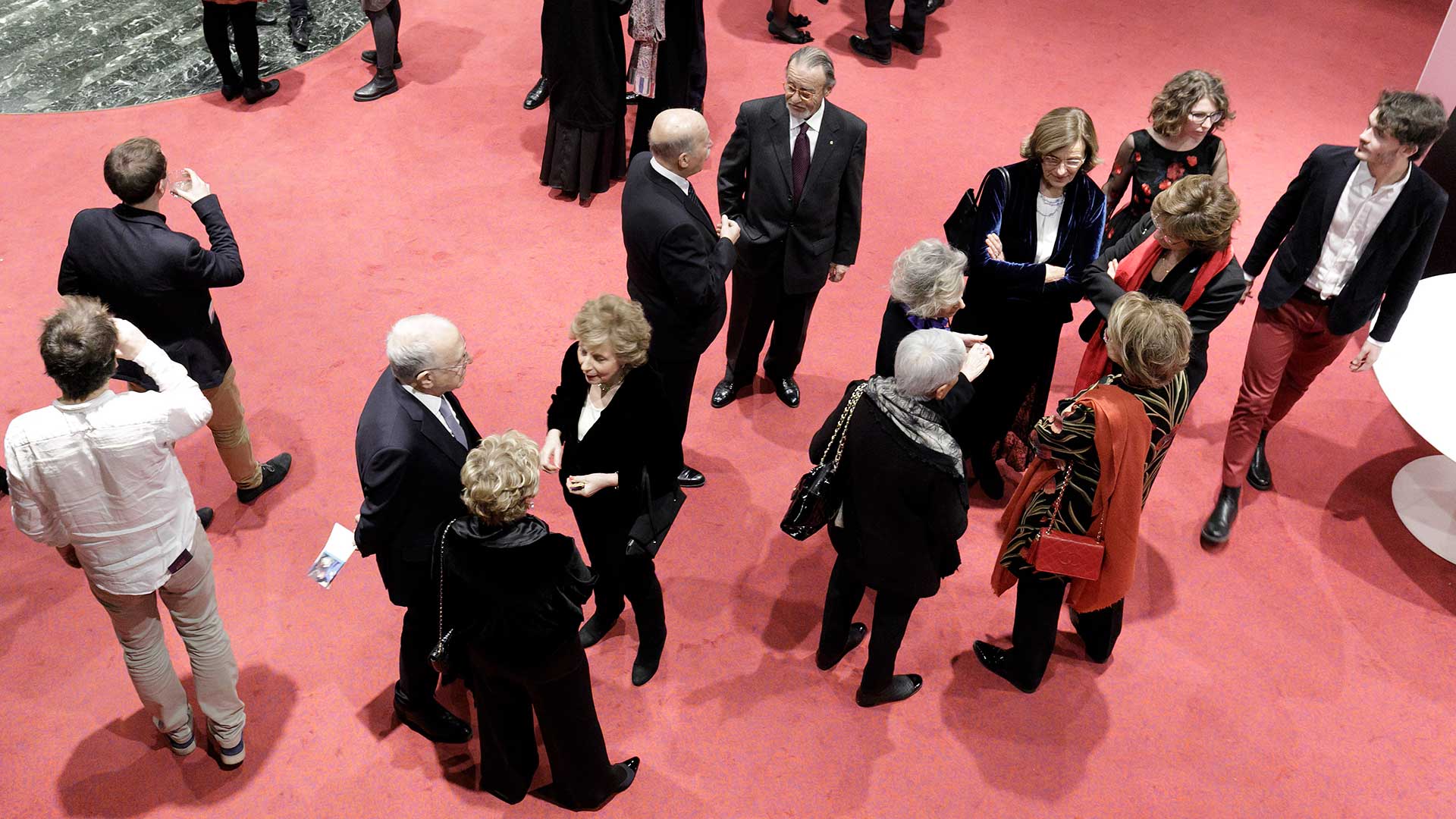- Our history, in a nutshell
- One Theatre, many offerings
- Your experience at the Theatre
- Accessibility for all
- First time at the opera?
- Prolong the experience, share the emotion
- How to buy tickets
- How to get there
- Your stay
Our history, in a nutshell
The Teatro Regio di Torino is one of the oldest opera theatres in existence today: its origins date back to 1740, the year in which it opened as a magnificent venue of the Savoy Court. Designed by architect Benedetto Alfieri with innovative criteria, it soon became a destination of the grand tours of the period. After almost two centuries of uninterrupted activity, the old building, a theatre “all’italiana” with five tiers of boxes, was destroyed in a violent fire on the night between 8 and 9 February, 1936.
The fire did not interrupt the programming of the Regio, which continued in other theatres across the city until the opening of the present structure. Unique in all the world for its design, thanks to the genius of architect Carlo Mollino, it was inaugurated in 1973 with I Vespri siciliani by Verdi, in the one and only stage direction of Maria Callas and Giuseppe Di Stefano.
Discover Teatro Regio's history from origins to date
One Theatre, many proposals
The Teatro Regio offers a rich Opera and Ballet Season consisting of numerous operas, ballets and musicals. Together with the main Season there are also many other activities: symphonic-choral and chamber music concerts involving the Orchestra, Chorus and Children’s Chorus of the Teatro Regio; a series of shows staged at the Piccolo Regio Puccini and intended for schools and families; lectures, guided tours, exhibitions and special events realized in collaboration with the City of Torino and other institutions like MITO SettembreMusica. All events that put Teatro Regio at the centre of the cultural and artistic life of Torino, Piemonte and more.
Your experience at the Theatre
Bar and refreshment service
Before the performances and during intermissions two bars are open to the public on the second level of the foyer: you can enjoy excellent food preparations for a snack, drinks and espresso coffee.
You can also dine during the intermission, in a special area: in this case, before the performance, purchase you “Opera Buffet”.
Cloakroom
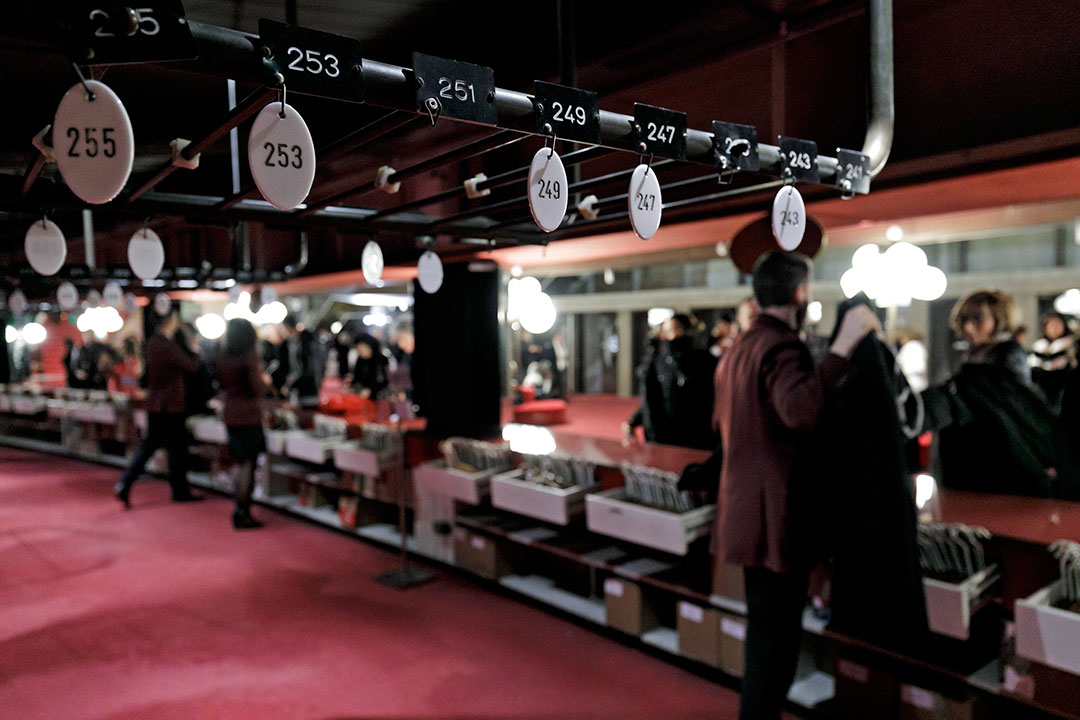 When you go to see a show you never know what to do with your jacket, your coat, your bag, and sometimes, your umbrella. Especially when it’s time to applaud! Fortunately, for both the performances in the main hall and those at the Piccolo Regio, a free cloakroom service is available.
When you go to see a show you never know what to do with your jacket, your coat, your bag, and sometimes, your umbrella. Especially when it’s time to applaud! Fortunately, for both the performances in the main hall and those at the Piccolo Regio, a free cloakroom service is available.
Publications
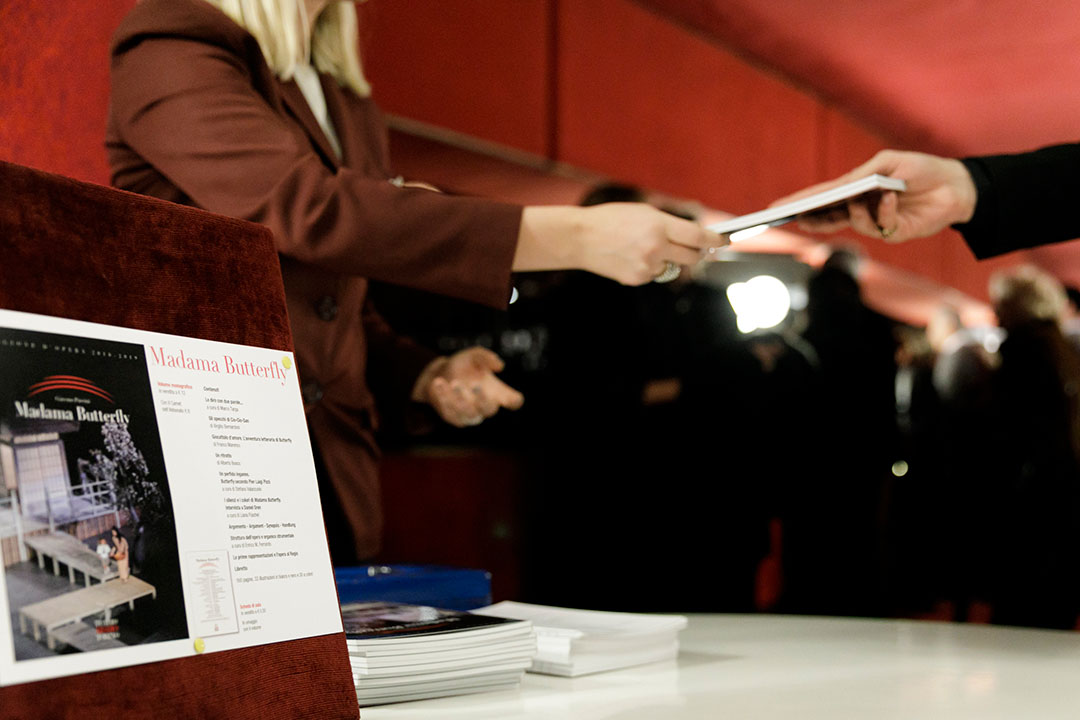 To know everything about the show you’re about to watch, pick up a monograph volume: here you’ll find presentation texts, interviews, detailed synopses and the complete libretto of the opera accompanied by numerous illustrations. You’ll receive a free copy of the leaflet with all the names of the interpreters for that show (also for sale separately). They will serve as mementos of an unforgettable evening.
To know everything about the show you’re about to watch, pick up a monograph volume: here you’ll find presentation texts, interviews, detailed synopses and the complete libretto of the opera accompanied by numerous illustrations. You’ll receive a free copy of the leaflet with all the names of the interpreters for that show (also for sale separately). They will serve as mementos of an unforgettable evening.
Accessibility for all
Access to the Teatro Regio for wheelchair users is facilitated by a clearly marked route without obstacles. In the main hall there are spaces for 6 wheelchairs, which can be reached by lifts at the level of row 28. For any necessary assistance, please speak to the Theatre personnel.
Access to the Piccolo Regio Puccini is by way of a lift; to use it, it is necessary to speak directly to the Theatre personnel. In the hall there are spaces for the positioning of 2 wheelchairs.
External and internal passageways are marked with conventional symbols. In front of the Theatre there are also parking places for vehicles displaying a parking card for the disabled.
Discover special prices for the disabled and their companions
First time at the opera?
Contrary to what people often think, opera is meant for everybody: office workers, professionals, pensioners, students and teachers… The audience is only one, but it comes from all over, driven by the curiosity for a world where you speak, dream, love (and die…), always singing!
How should I dress?
The management requests attire appropriate to the theater's decorum. Spectators in tank tops or shorts are not allowed and may be denied entry without a refund.
For the opening night of the Season, black tie dress code is recommended.
What time should I arrive?
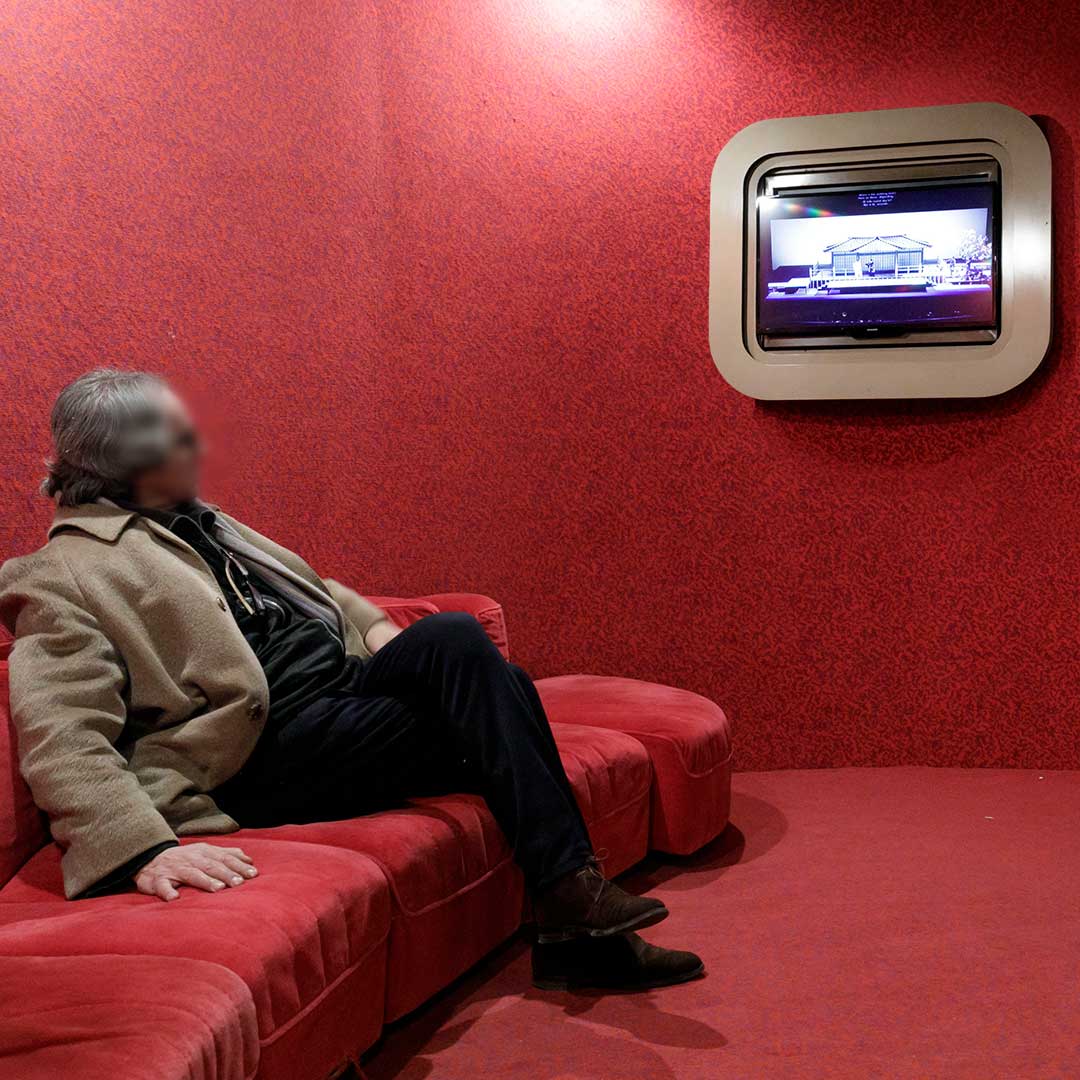 On time, obviously. Performances begin exactly at the time indicated on your ticket. We suggest arriving half an hour before the start (the Theatre opens 45 minutes before): this is the best way to avoid arriving stressed and overheated, in short, not in the best conditions to enjoy the show. Take your time, also because once the show begins you can enter the hall only during the intermissions and, even if there are areas with televisions in the foyer where you can see the show, it would be a real shame not to be able to watch it live!
On time, obviously. Performances begin exactly at the time indicated on your ticket. We suggest arriving half an hour before the start (the Theatre opens 45 minutes before): this is the best way to avoid arriving stressed and overheated, in short, not in the best conditions to enjoy the show. Take your time, also because once the show begins you can enter the hall only during the intermissions and, even if there are areas with televisions in the foyer where you can see the show, it would be a real shame not to be able to watch it live!
Do the operas have subtitles?
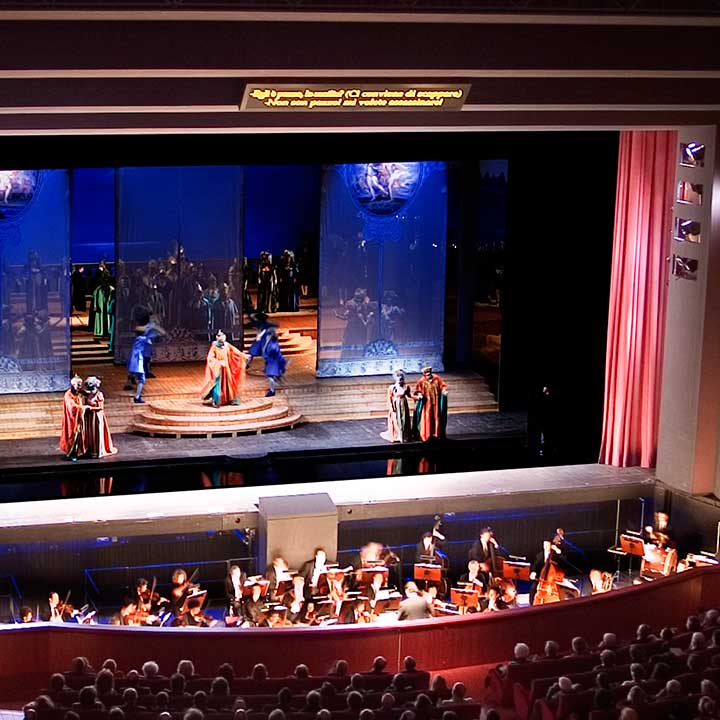 Yes, always. Unlike the cinema, operas are (almost) always presented in their original language. Therefore, if operas in German or French discourage you or you think that also in Italian you don’t understand everything, don’t worry: the operas always have double subtitles (located above the proscenium), in Italian and original language or in Italian and English (you’ll find the information on the page of each opera). You’ll have to find another excuse that isn’t the language barrier to deprive yourself of the opera…
Yes, always. Unlike the cinema, operas are (almost) always presented in their original language. Therefore, if operas in German or French discourage you or you think that also in Italian you don’t understand everything, don’t worry: the operas always have double subtitles (located above the proscenium), in Italian and original language or in Italian and English (you’ll find the information on the page of each opera). You’ll have to find another excuse that isn’t the language barrier to deprive yourself of the opera…
Duration and intermissions
Almost all the operas have at least one intermission: the interpreters catch their breath, the orchestra conductor unwinds… and you can stretch your legs, have a chat and perhaps allow yourself a drink. Information about the number and duration of the intermissions (there is often more than one), along with the length of the show, can be found on the pages of the individual operas (updated with precision soon before the opening night).
Prolong the experience, share the emotion
 Leaving the theatre the emotion is still alive, the feelings intense and real. Share your thoughts with as many people as you can (friends, family). And give us an idea of your impressions of the evening by becoming music critics or simply leaving a comment on our social network.
Leaving the theatre the emotion is still alive, the feelings intense and real. Share your thoughts with as many people as you can (friends, family). And give us an idea of your impressions of the evening by becoming music critics or simply leaving a comment on our social network.
How to buy tickets
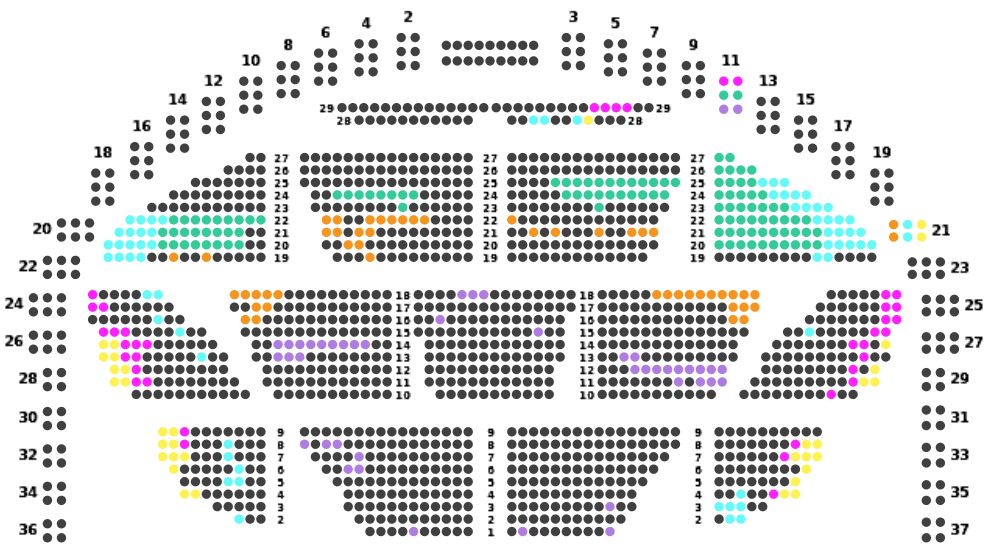
 The easiest way to assure yourself tickets for the shows and concerts is to buy them online.
The easiest way to assure yourself tickets for the shows and concerts is to buy them online.
The Box Office of the Theatre is available according to this opening time.
How to arrive
By plane
From the International Airport of Torino (TRN) you can reach the city centre:
By train
From both of the Torino train stations, Porta Susa and Porta Nuova, the Theatre can be reached by taxi (10 minutes) or on foot (about 20 minutes).
You can find your train to Torino at these internet sites:
By car
Depending on where you’re coming from, these are the main routes:
-
From the north and north-east
Motorway A4 Torino-Milano-Trieste or Motorway A5 Torino-Aosta, in both cases the exit is Corso Giulio Cesare -
From the west
Motorway A32 Torino-Bardonecchia, exit Corso Regina Margherita -
From the south and south-east
Motorway A6 Torino-Savona or Motorway A21 Torino-Brescia, exit Corso Unità d’Italia
Parking in the city center is by payment, both in the street and in the numerous underground car parks located near the Theatre:
- Roma/San Carlo/Castello
- Santo Stefano
- Vittorio Veneto
- Valdo Fusi
Please note that in Torino there is a Limited Traffic Zone (ZTL) that prohibits access to the city centre from 7.30 a.m. to 10.30 a.m. from Monday to Friday; some other streets are reserved for public transportation from 7 a.m. to 8 p.m. If you are staying in a hotel situated within the ZTL, the hotel can provide you with a pass to enter with your car.
Public transportation
The stops nearest to the Teatro Regio are:
- Castello: lines 13, 15, 55, 56
- Garibaldi: lines 4, 11, 27, 51, 57, Star2
The nearest stops of the Metro are at the train stations of Porta Nuova and Porta Susa (XVIII Dicembre).
- Porta Nuova
- Porta Susa (XVIII Dicembre)
Taxi
In Torino you can call for a taxi at the following numbers: +390115737 and +390115730; however, in Piazza Castello there are two taxi ranks.
Your stay
If you want to know where to sleep and eat, the tourist services of the City of Torino can help you to find the ideal place near the Theatre:
